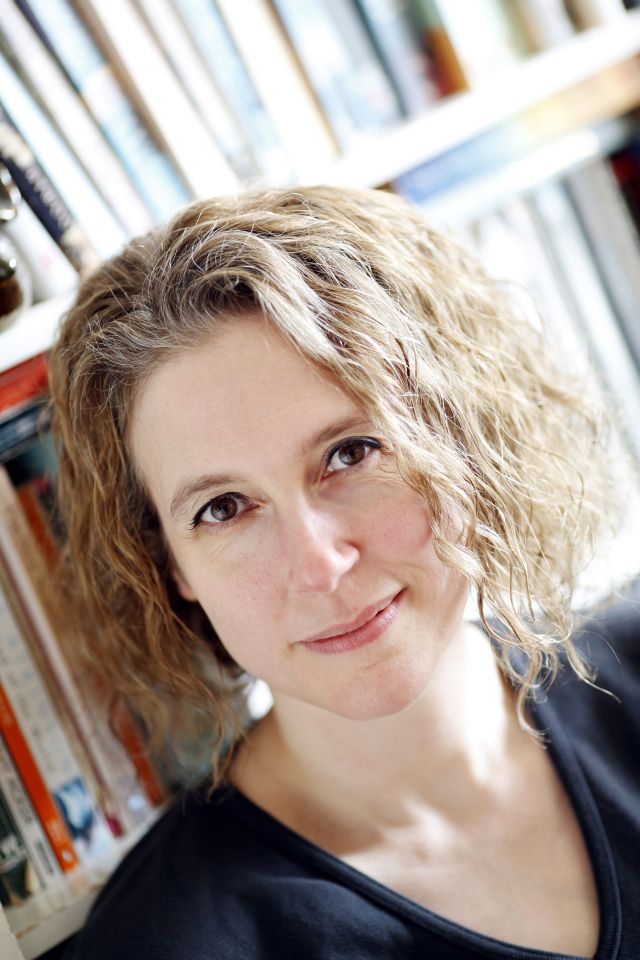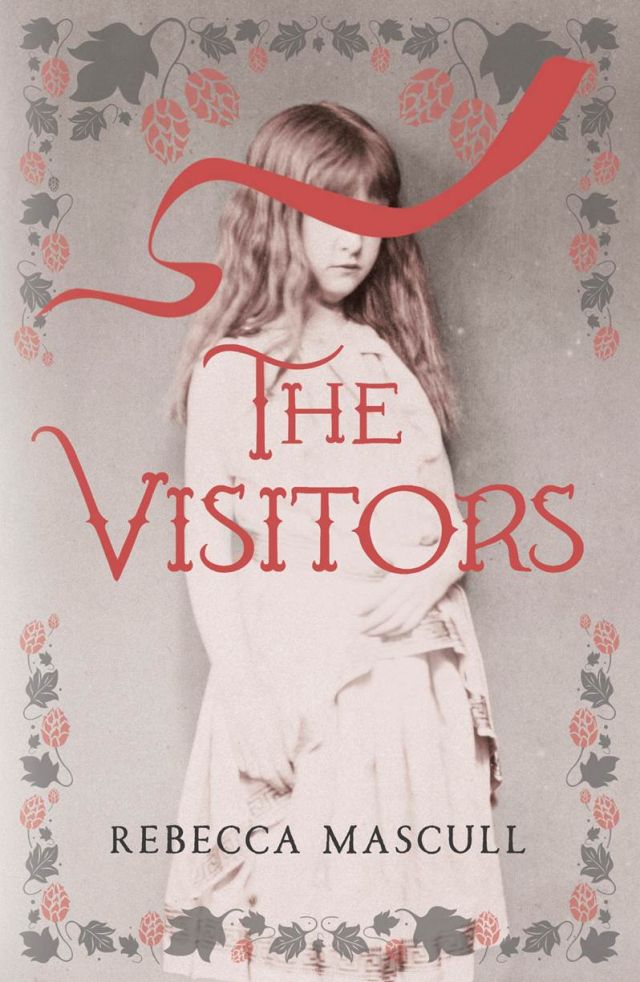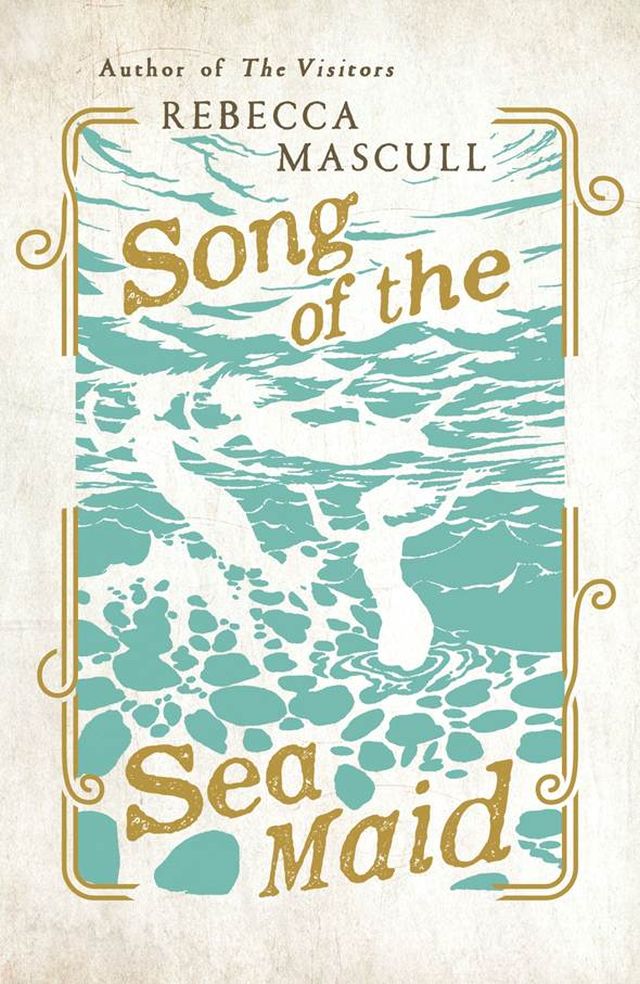How is a story born? From where do the ideas for novels come? Rebecca Mascull explores one of the most interesting questions we can ask of a story: What if?

How is a story born? From where do the ideas for novels come? Some start with a character, an image, a scene or even a place, something that catches the novelist’s eye or mind. Stories can often start with a question that needs answering. One of the most interesting questions we can ask of a story is What if?
What if a girl went deaf and blind in Victorian England? What would happen to her? How would she be treated? How would she learn to communicate? What if she didn’t learn to communicate? What would people think of her? Would she ever find love?
There’s my first novel, The Visitors, in a nutshell. What if? questions are fun to work with. They throw up lots of other questions, and one can structure a plot around answering those questions. Here’s another example:
What if a ground-breaking scientific discovery were made a long time ago but the person who came up with it was poor, with no connections, basically a nobody? Perhaps an orphan, perhaps a female, in a time where women were seen as intellectually feeble or at least not half as clever as men? Would their idea be taken seriously? Would it even be heard? Or would it be lost forever? Yes, as you might’ve guessed, those are the questions that came to me when starting my second novel, Song of the Sea Maid.

Answering such questions can lead to a cause and effect structure e.g. in The Visitors, my protagonist Adeliza Golding loses her sight and hearing after a fever in her early years and is assumed to be an idiot. How does she react? What does she think about? Can she think? Of course she can, but how? What does she do to comfort herself? How does she express her frustration? What if she lived on a hop farm and what if one of the seasonal hop pickers knew some finger spelling, and what if they come across each other and this visitor to her farm reaches for her hand and spells into it? What would happen then?
And so forth! For me, the most interesting thing about What if? questions is that the really fascinating ones are often about unusual people or events. After all, everyday What if? questions might not lead to such interesting possibilities. For example, What if someone runs out of milk? Ostensibly not the most inspiring of story openings (although your character could be forced to go out for milk, then get hit by a bus, then end up in hospital and meet a nurse who tries to…etc…etc…Good stories can come from seemingly inauspicious beginnings!) So, a deaf-blind Victorian child or an 18th Century orphan girl scientist are not your average, run-of-the-mill type of character, I suppose, and their mere existence naturally creates another great tool for a writer: obstacles. What do they want? What obstacles are in their path to prevent them getting what they want? How do they overcome them?
Therein lies your character arc and a good portion of the plot. But before you get carried away, you’ve got to understand their setting, the environment through which they move and live their span i.e. their time and place(s). And particularly if your story is historical, this is where research comes to the fore. For example, with Dawnay Price, my 18th Century orphan, I knew I wanted her to be taken to an orphanage, a bit like the Coram Foundling Hospital whose museum I wanted to visit. But when I started researching 18th Century orphanages, I discovered that these orphans were often taught only to read and not to write. They were being educated to a level to prepare them for service or to be a soldier, so it was felt there was no need for them to write. I didn’t know this. My research had done what it often does: thrown me a nugget of hidden history that becomes an obstacle for my character, an obstacle that I didn’t know existed until I bothered to go and find out about it. And every obstacle begs a question: what if she’s determined to write? Well then, she must get her hands on some writing materials – quill, ink, paper, a knife to sharpen the quill – where’s she going to get this stuff from? Will she get into trouble? And we’re off…

Thus, a character who has an unusual situation or desire, questions to answer, obstacles to overcome, historical research to be done, and there you have the seeds of a novel. The fun part for me is to take this character and place them in the restrictions of their setting and watch them navigate it. When I imagine this process, I always picture the gods in Clash of the Titans, picking up little statues of the mortals and placing them in the arena. What will they do now? Don’t worry, I haven’t any illusions of grandeur about myself, but when I’m writing a novel, I am somewhat omnipotent to begin with at least, in that I place these characters in their situation. But what’s really astonishing is that I have little control over what they choose to do next; just as the Gods are thwarted by the vagaries of human free will. Once created, characters have an infuriating habit of doing precisely what they want, or following their own internal logic that the novelist has seemingly no control over. You want him to marry her, but he’s far more interested in her over there, that one, who was a minor character that was supposed to die early, but now she’s taking over the whole story and wants to…
And so forth…The mysteries of story writing! Endlessly interesting to me and why I can’t stop myself. So, if you’re a writer, and if you can’t find your way forward, ask yourself the question: What if? And look, the thorny branches part, and through the gap you can see a path snaking away into the forest, its end hidden from sight. Step in and find your story.
Rebecca Mascull is the author of two novels published by Hodder & Stoughton. The Visitors is the story of Adeliza Golding, a deaf-blind girl living on her father’s hop farm in Victorian Kent; it was nominated for the Edinburgh Festival First Book Award. Song of the Sea Maid follows Dawnay Price, an eighteenth century orphan who becomes a scientist and makes a remarkable discovery. Rebecca has worked in education and has a Masters in Writing. She is also a member of a group of authors called The Prime Writers. She lives by the sea in the east of England with her partner Simon, their daughter Poppy and cat Tink.
You can get to know Rebecca a bit better by visiting her pages on the following websites:
Comments